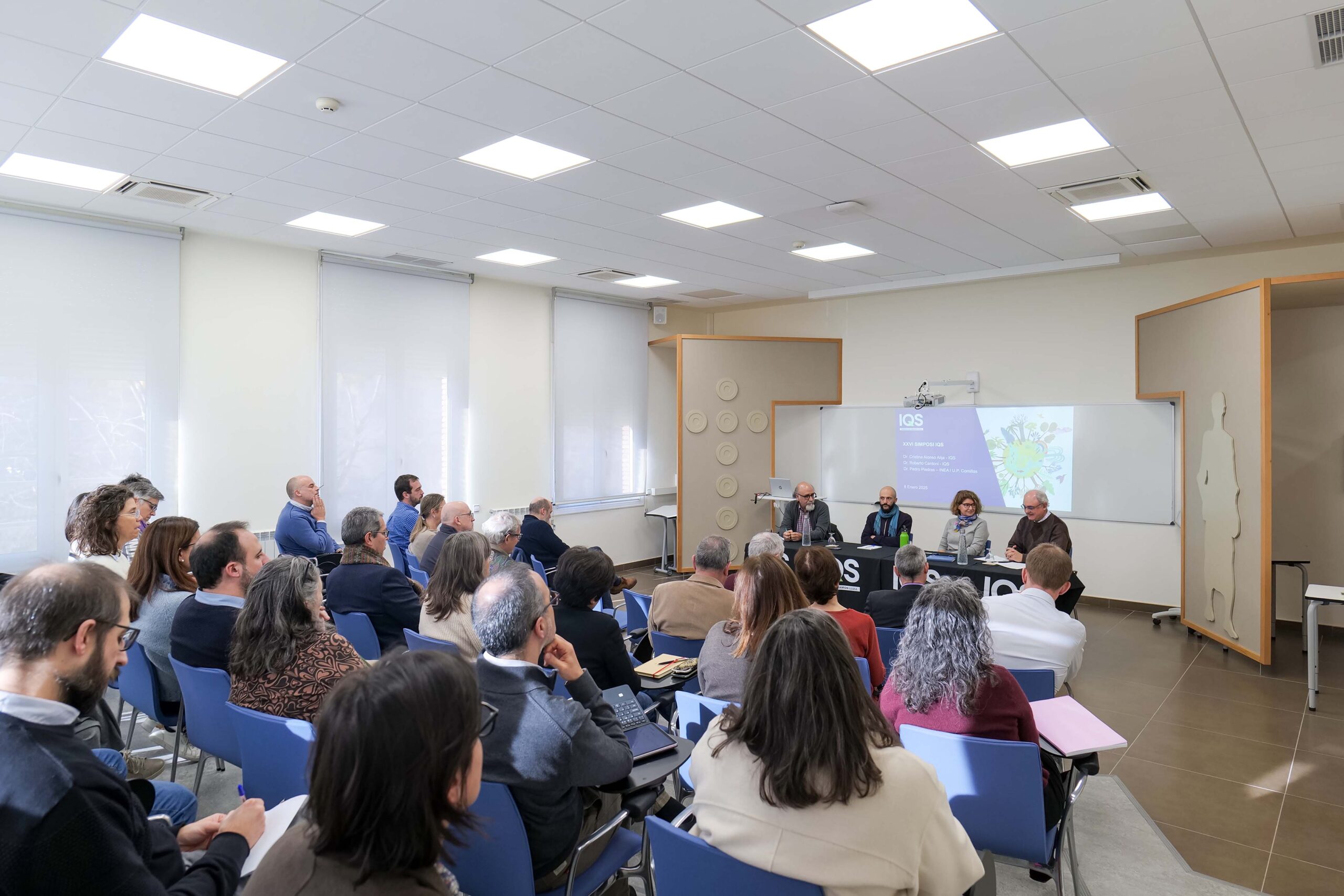On 8 January, the 26th “IQS Symposium” took place at IQS under the theme “Environmental Justice and Joint Action.” With the participation of about forty attendees, the event featured speeches by leading experts including Dr Cristina Alonso, director of the Reference Research Centre in Ecology at UNIJES, Dr Roberto Cantoni, member of the IQS Department of Ethics and Christian Thought, and Dr Pedro Piedras, professor at INEA (Universidad Pontificia Comillas).
"Environmental Justice and Joint Action": reflections from the 26th IQS Symposium

The impacts of climate change and key players
Dr Cristina Alonso opened the event by reflecting on the impacts of climate change and the actors involved in its mitigation. She stressed that many planetary limits have already been exceeded and listed the essential agents to face this crisis: COPs (Conferences of the Parties supported by the UN), international organizations, academia, public and private sectors, and civil society.
Alonso said that the necessary actions range from transforming cities and food systems to transitioning to sustainable energy and implementing climate warning systems. She also stressed that addressing climate change is a human rights imperative, noting that the richest countries, primarily responsible for the crisis, have also been the greatest beneficiaries of global development.
Environmental injustices: Green extractivism and energy justice
Dr Roberto Cantoni illustrated concrete cases of environmental injustice, focusing on French Guiana and Western Sahara. Cantoni denounced the construction of wind power stations in the Sahara by the Moroccan government, with support from European companies, without respecting international law or local communities. He called this practice “green extractivism,” comparing it to historical colonialism, now focused on appropriating land for renewable energy and exploiting rare minerals.
Dr Cantoni exposed the contrast between green technology in developed countries and resource exploitation in the global south, highlighting how this inequality perpetuates injustice: “A parent picking up their children in an electric car in Norway depends, in part, on backbreaking work in the cobalt mines of the Democratic Republic of the Congo.”
Humanism in the face of the socio-environmental challenge
Dr Pedro Piedras closed the series of presentations with a reflection on the individual response to the ecological crisis. His speech, entitled “Humanism in the face of the socio-environmental challenge,” stated that environmental issues affect not only the existence of the planet, but humanity itself. Piedras urged taking action through conviction, not calculation, stating that climate solutions demand efforts comparable to climbing a mountain: inevitable but necessary.
He stressed the value of individual gestures, even when their results are not immediate, and emphasized that change begins with each individual’s transformation: “Ending the technocratic paradigm does not begin with storming the Bastille, but an inner revolution.” The symposium concluded with an enriching debate moderated by Fr. Llorenç Puig, from the IQS Department of Ethics, who highlighted the importance of joint action in the face of environmental challenges. This event, organized annually since 2000 by the university’s Department of Ethics, reaffirmed the need for a collective commitment to build a sustainable future.









